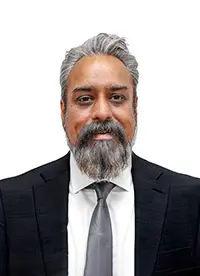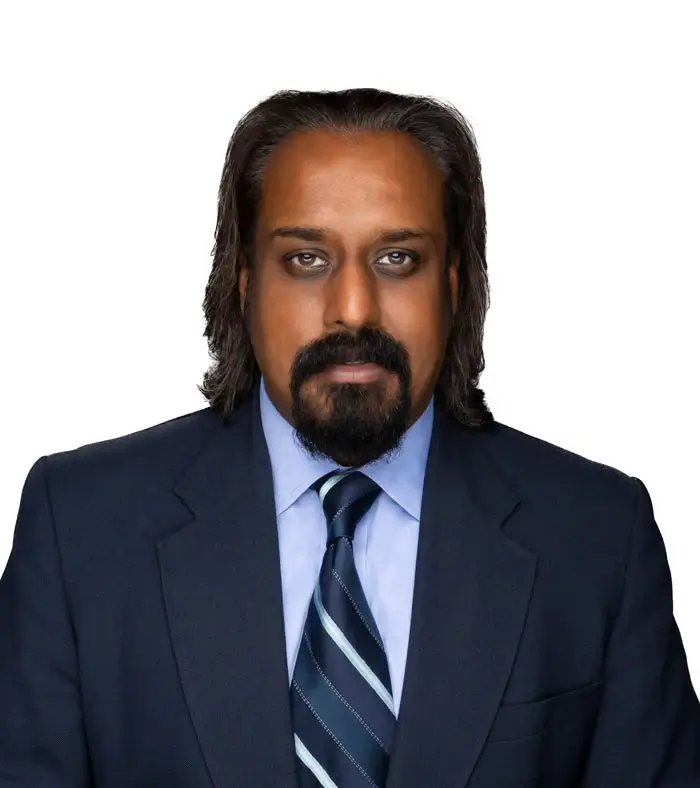
HolisticHealing: Complete Guide to Mind, Body, and Spirit Wellness
-
 By:
Alex Herrera
By:
Alex Herrera
-
 Editor:
Phyllis Rodriguez, PMHNP-BC
Editor:
Phyllis Rodriguez, PMHNP-BC
-
 Clinical Reviewer:
Dr. Ash Bhatt, MD, MRO
Clinical Reviewer:
Dr. Ash Bhatt, MD, MRO
Key Takeaways
- Holistichealing addresses the mind, body, and spirit as a unified whole, making it highly effective treatment for trauma, addiction, and mental health disorders.
- Legacy Healing Center integrates holistic care—like yoga, meditation, nutrition, and spiritual wellness—with trauma-focused therapy, CBT, and DBT across PHP, IOP, and outpatient levels of care, and uses these approaches in conjunction with conventional treatments for optimal outcomes.
- Trauma is often at the root of addiction and mental health challenges, and a whole-person approach helps heal underlying wounds, not just symptoms.
- Research from institutions like Johns Hopkins and the CDC shows integrative care improves compliance, reduces healthcare costs, and increases long-term recovery success.
- The first step to healing is understanding your overall health status and exploring holistic medicine options; for those struggling with addiction, Legacy offers evidence-based and trauma-informed care supported by holistic practices.
What is holistic healing and why does it matter for trauma and addiction recovery?
Holistic healing is a whole-person approach to wellness that treats the mind, body, and spirit together, rather than focusing only on symptoms or isolated forms of illness. Individuals are treated using both holistic and conventional methods to address all aspects of their health. For individuals struggling with trauma, addiction, or mental health disorders, this approach is vital because physical concerns often stem from emotional wounds, unresolved stress, or even long-term digestive issues linked to trauma and imbalance in human physiology.
At Legacy Healing Center, we believe trauma is central to many struggles with substance use, mental health, and disease. That’s why all levels of our care—Partial Hospitalization (PHP), Intensive Outpatient (IOP), and aftercare—are rooted in trauma-informed treatment supported by holistic medicine, including natural remedies, mindfulness, nutrition, and exercise. Unlike traditional medicine that may rely heavily on medications alone, our programs focus on the overall well being of our patients and restore balance across all dimensions of life through integrative, whole-person care.
What are the core principles of Holistic Healing?
Holistic healing is grounded in the belief that optimal health is achieved by treating the whole person—body, mind, and spirit—rather than just addressing isolated symptoms. This holistic approach recognizes that physical, emotional, mental, and spiritual aspects of health are deeply interconnected, and that true healing comes from addressing the root causes of illnesses, not just their outward signs.
A key principle of holistic healing is the emphasis on lifestyle changes and stress management as essential components of overall health and well-being. By making mindful adjustments to diet, exercise, sleep, and daily routines, individuals can support their body’s natural ability to heal. Natural remedies, such as herbal supplements and mindfulness practices, are often used to complement conventional medicine, providing a more integrative approach to treatment.
Holistic practitioners, including naturopathic doctors and integrative medicine specialists, create personalized treatment plans that consider each person’s unique needs, circumstances, and health goals. This individualized care ensures that emotional, physical, and spiritual concerns are all addressed, empowering individuals to take an active role in their own healing journey. By working in partnership with conventional healthcare providers, holistic healing offers a comprehensive path to wellness that supports the whole person and promotes lasting well being.
What are the core principles of holistic healing?
Holistic healing recognizes that the body has an innate ability to heal itself when given the right support. Instead of masking symptoms, holistic care connects seamlessly with conventional treatment, preventive practices, and traditional medicine through an integrative medicine framework. Holistic healing includes a variety of treatments that address the whole person, integrating both traditional and alternative therapies. The relationship flows as: holistic healing → root cause treatment → sustainable wellness → improved quality of life.
Key concepts include:
- Integrative medicine: Combines evidence-based therapies with complementary healing practices such as mindfulness, yoga, and nutrition alongside conventional treatment.
- Whole-person care: Designed to treat the physical, emotional, and spiritual imbalances that often underlie disease or addiction.
- Patient empowerment: Encourages self-awareness, lifestyle changes in diet and exercise, and active participation in the healing process.
- Trauma focus: Healing unresolved trauma to improve mental resilience and physical outcomes against illness.
- Qualified care: While some people seek guidance from a naturopathic doctor for natural remedies, at Legacy Healing these approaches are integrated within evidence-based treatment to ensure patients achieve safe and lasting results. Many holistic health practitioners hold a degree such as MD, DO, ND, or DC, which establishes their expertise.
Why is holistic healing important in modern healthcare and addiction treatment?
Research shows that 60% of U.S. adults live with chronic conditions (CDC) and up to 75% of doctor visits are stress-related. Conventional medicine often overlooks the impact of trauma, lifestyle, and emotional factors, which can deeply affect overall health and lead to cycles of symptom management rather than lasting healing.
Holistic medicine aims to restore balance across the body, mind, and spirit by looking beyond a single diagnosis and considering the whole person’s well being. This individualized approach recognizes that stress, trauma, poor diet, or even family dynamics may play as much of a role in disease as biological factors. Unlike some forms of alternative medicine, holistic care integrates evidence-based practices with integrative medicine models, using methods such as acupuncture or massage alongside conventional care. The idea is to work with a qualified provider or doctor who has the proper training and education, and with whom patients of any age can feel comfortable.
A holistic approach in addiction treatment can improve outcomes by:
- Treating root causes: Addressing trauma, stress, and imbalance rather than masking symptoms with only medications.
- Reducing relapse risk: By helping patients and clients process emotional pain and adopt sustainable coping tools.
- Supporting mental and emotional regulation: Anxiety, depression, and PTSD improve when addressed alongside physical symptoms through counseling, mindfulness, exercise, and lifestyle changes.
- Improving compliance: Johns Hopkins University research shows holistic, integrative medicine approaches improve treatment adherence and reduce long-term costs, benefiting both the individual and the larger healthcare world.
At Legacy Healing Center, our trauma-focused programs bring together clinical care with holistic practices so each doctor, clinician, and counselor collaborates to treat the whole person. With proper training, education, and individualized consideration of each client’s unique beliefs and life experiences, our model helps families and individuals achieve long-term recovery and greater health.
What holistic healing modalities does Legacy Healing use?
At Legacy Healing Center, holistic medicine is not an abstract idea—it is a philosophy that guides how we help patients heal from trauma, addiction, and mental health challenges. Our approach integrates evidence-based therapies with alternative practices that treat the whole body, mind, and spirit. By combining traditional clinical medicine with holistic modalities, we create individualized healing plans that address the root causes of suffering and promote sustainable recovery.
Holistic modalities are grounded in both ancient healing practices and modern clinical insight. While some clients may also consult a naturopathic doctor or explore therapies like acupuncture or massage, Legacy Healing focuses on integrative care within structured programs that honor each person’s beliefs and personal journey. This form of care aims to create balance, improve quality of life, and reduce the impact of unresolved trauma that can affect both mental and physical health.
| Modality | Focus | Conditions Supported | Typical Role in Treatment |
|---|---|---|---|
| Trauma Therapy | Resolving underlying trauma | Addiction, PTSD, depression | Core of Legacy’s care model |
| Meditation & Mindfulness | Stress reduction, grounding | Anxiety, cravings, insomnia | Daily practice in PHP/IOP |
| Yoga & Movement Therapy | Mind-body awareness | Trauma, addiction recovery, pain | Restores balance, reduces stress |
| Massage Therapy and Acupuncture | Lymphatic activation, self-healing | Stress management, pain | Alternative medicines are used in all levels of care |
| Nutrition Counseling | Healing through diet | Energy, mood, recovery support | Builds physical foundation for recovery |
| Experiential Therapy | Creative/active healing | Trauma release, emotional growth | Complements CBT/DBT |
| Spiritual Care | Meaning, connection | Recovery, identity, resilience | Supports long-term healing |
Many of these modalities have been studied extensively at the university level, with growing research supporting their effectiveness in combating addiction and also chronic disease. By integrating these approaches with clinical care, Legacy Healing provides a balanced and comprehensive form of long-term recovery and wellness for our clients.
How do you begin a holistic healing journey?
Starting a holistic healing journey begins with the idea that true wellness means treating the whole body, mind, and spirit, rather than just symptoms. This is the foundation of holistic medicine, which guides how Legacy Healing supports recovery from trauma, addiction, and mental health struggles.
- Assess overall health: Consider your physical, emotional, lifestyle, and spiritual wellness. Many patients find that stress, trauma, or imbalance in daily life can be just as impactful as physical illness.
- Work with qualified practitioners: At Legacy, licensed clinicians and holistic practitioners collaborate with each doctor or therapist to build safe, individualized care plans.
- Layer holistic with clinical care: Trauma therapy, CBT, and DBT are enhanced by yoga, mindfulness, and nutrition—showing how holistic and traditional medicine can work together.
- Monitor progress and adjust: Healing is a journey—plans evolve as balance is restored and new layers of growth emerge.
What mistakes should you avoid in holistic healing?
- Replacing evidence-based care with holistic care only: True healing comes from blending holistic medicine with proven therapies.
- Expecting quick fixes: Trauma and addiction recovery take time; progress unfolds over weeks to months, not overnight.
- Working with unqualified providers: Always ensure practitioners and doctors are properly licensed or certified.
- Overloading with too many modalities at once: Healing should be structured, not overwhelming—an intentional process that respects both the mind and the body.
How does holistic healing help with trauma, addiction, and mental health?
Unresolved trauma often drives addiction, anxiety, depression, and even physical disease. Holistic care helps patients heal by:
- Calming the nervous system through meditation, yoga, and breathwork.
- Releasing trauma stored in the body with experiential and somatic therapies.
- Restoring balance through nutrition, exercise, and sleep hygiene.
- Supporting long-term recovery through meaning, purpose, and spiritual connection.
At Legacy Healing, we’ve seen clients transform when trauma work and holistic therapies are combined with evidence-based medicine. This approach not only addresses symptoms but also creates a new foundation for life rooted in balance and resilience.
How do I know if holistic healing is right for me?
Holistic healing is appropriate for anyone seeking deeper recovery and balance, whether you’re managing stress, trauma, or addiction. For those struggling with substance use or mental health disorders, holistic healing is most effective when combined with clinical treatment in a setting like Legacy Healing Center, where both doctors and therapists guide the process.
What should I do if I’m ready to explore holistic healing for addiction or trauma recovery?
The first step is to connect with a trusted treatment provider. At Legacy Healing Center, our programs are designed to heal the entire person—mind, body, and spirit—through trauma-informed care, evidence-based therapy, and holistic medicine.
👉 Verify your insurance today to explore your coverage options and take the first step toward comprehensive healing.
Related Reading:
-
Luxury Drug & Alcohol Detox in Los Angeles – Learn how our private, medically supervised detox provides comfort, privacy, and high-end care.
- Effective Strategies for Drug and Alcohol Abuse Treatment
- Holiday Self-Care in Recovery: A Survival Guide
Frequently Asked
Questions about holistic healing
Who can benefit from holistic healing during addiction treatment?
Holistic healing is ideal for anyone looking for a balanced and comprehensive approach to recovery. It works especially well for individuals dealing with stress, trauma, or co-occurring mental health conditions who want to strengthen both their emotional and physical well-being.
How long does it take to feel results from holistic therapies?
Many people start noticing positive changes within a few sessions—such as reduced anxiety, better sleep, and improved focus. With continued practice, holistic therapies help create long-term emotional balance and healthier habits that support sustained sobriety.
Does holistic healing replace traditional addiction treatment?
No. Holistic healing complements traditional addiction treatment. It’s designed to enhance the effectiveness of therapy, medical care, and group support by addressing underlying issues that affect recovery—like stress, trauma, and poor lifestyle habits.
How can holistic healing help prevent relapse?
Holistic healing teaches practical tools for managing stress and emotions—such as mindfulness, meditation, and physical wellness. These techniques build self-awareness and resilience, reducing the urge to return to substance use during difficult moments.











